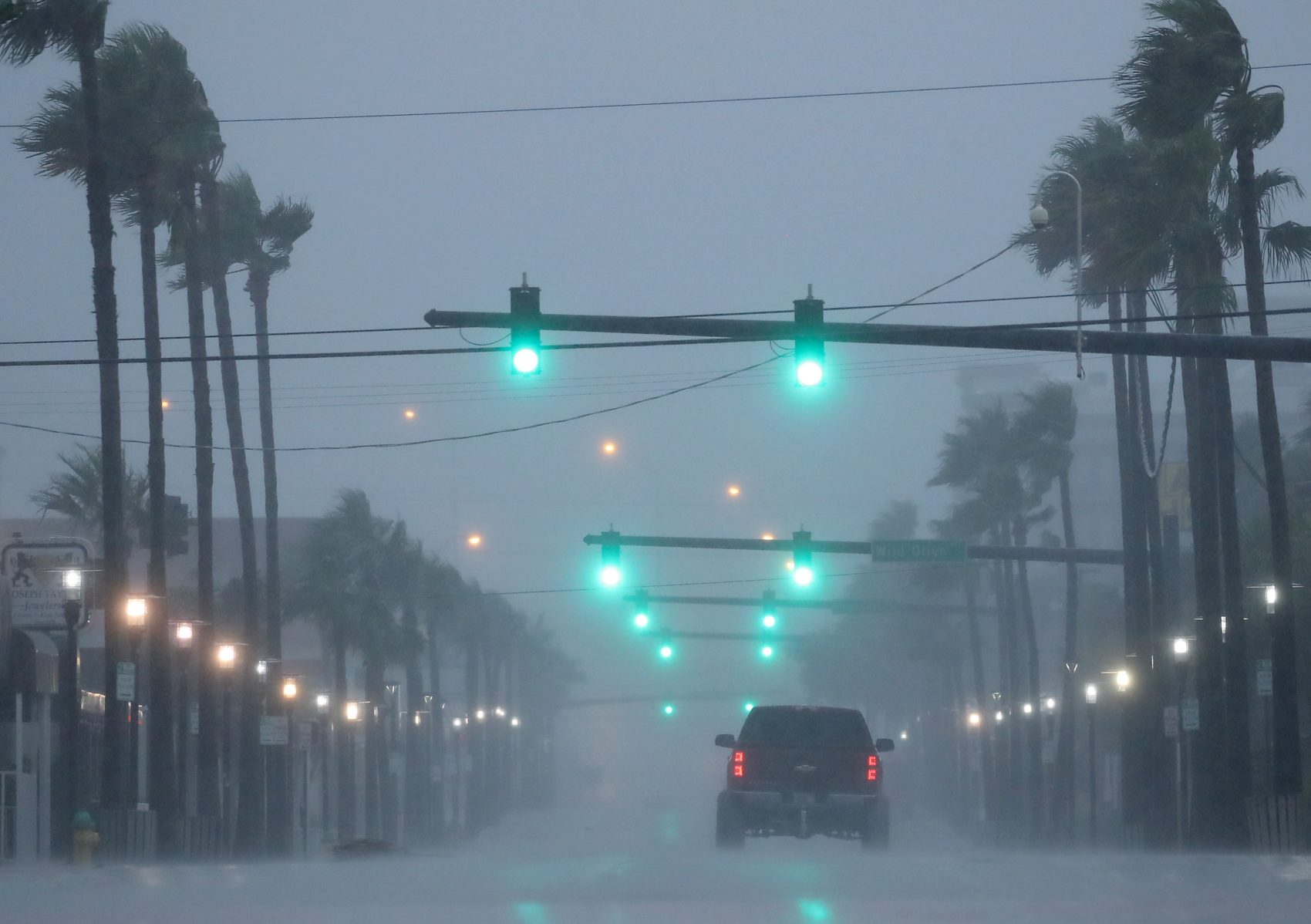Florida County: People On Sex Offender Registry Should Shelter From Dorian in Jail
Barred from other shelters, registrants were left with few options as the hurricane approached.

For some people convicted of sex crimes in Florida, the only shelter open to them during Hurricane Dorian was the county jail.
In some counties, people on the registry were barred from shelters set up for those evacuating, and told to go to separate locations, away from children and other community members. If they attempted to stay with friends or relatives, they faced daunting residency and registration requirements, according to the Florida Action Committee, which advocates for reform of sex offender registry laws. Failure to comply can mean a felony conviction and incarceration.
In Osceola County, a separate shelter was set up at the housing agency for “sex offenders,” meaning people on the registry, according to a local news report by WKMG-TV. And in Flagler County, registered sex offenders were directed to go to the sheriff’s office for shelter, according to a WJXT-TV report. The Nassau County Board of Commissioners website advised people on the sex offender registry to seek shelter in the county jail.
“It was such a traumatic experience to be incarcerated. I’m not going to subject myself to that voluntarily,” a representative with the Florida Action Committee told The Appeal. “I’d rather tie myself to a tree.”
The representative asked to remain anonymous because he is on the state sex offender registry. He said he is not living in an area that needed to evacuate.
Such restrictions, critics say, fail to prevent sexual harm and only punish an already marginalized population: registrants and their families, who can be split apart in a storm.
“Natural disasters, emergencies are complicated for everybody,” said Guy Hamilton-Smith, legal fellow at the Sex Offense Litigation and Policy Resource Center at Mitchell Hamline School of Law. “For people who are on the registry and who are required to comply with this additional layer of law and policy, they become even more exceptionally complicated with a potential prison term on the end of it if they don’t manage to navigate the laws perfectly.”
Under Florida law, those who evacuate must register their temporary addresses, in person, at the sheriff’s office if they will be away from home for three or more days. They are also required to update their driver’s license or identification card with the temporary address within 48 hours of their departure date.
Previously, state law required registration of a temporary address if a registrant would be away for five days, but in 2018 legislators shortened the time period to three. The legislature also added a mandatory minimum sentence for failing to comply with registration requirements—six months of probation on GPS monitoring. The maximum punishment is five years in prison.
A registrant’s temporary address must abide by state and municipality residency restrictions. State law bans registrants convicted of certain sex crimes from living within 1,000 feet of any school, child care facility, park, or playground. Some municipalities impose even more onerous restrictions.
“In many cases where it’s impossible to comply, you have no choice,” said the Florida Action Committee representative. “You can’t go anywhere. You’re risking a third-degree felony for just trying to keep yourself safe.”
As with other aspects of the registry, these restrictions are based in myths about sexual violence, according to advocates. Studies show that people convicted of sex offenses are among the least likely to reoffend and that most sex crimes are committed by someone known to the victim.
“There is no basis for this other than fear,” said Alissa Ackerman, assistant professor of criminal justice at California State University, Fullerton. “There is absolutely no reason to bar people from going to shelters simply because they have a sexual offense on their record.”
